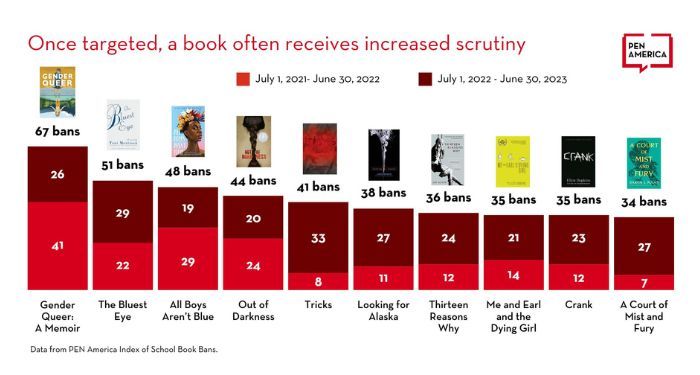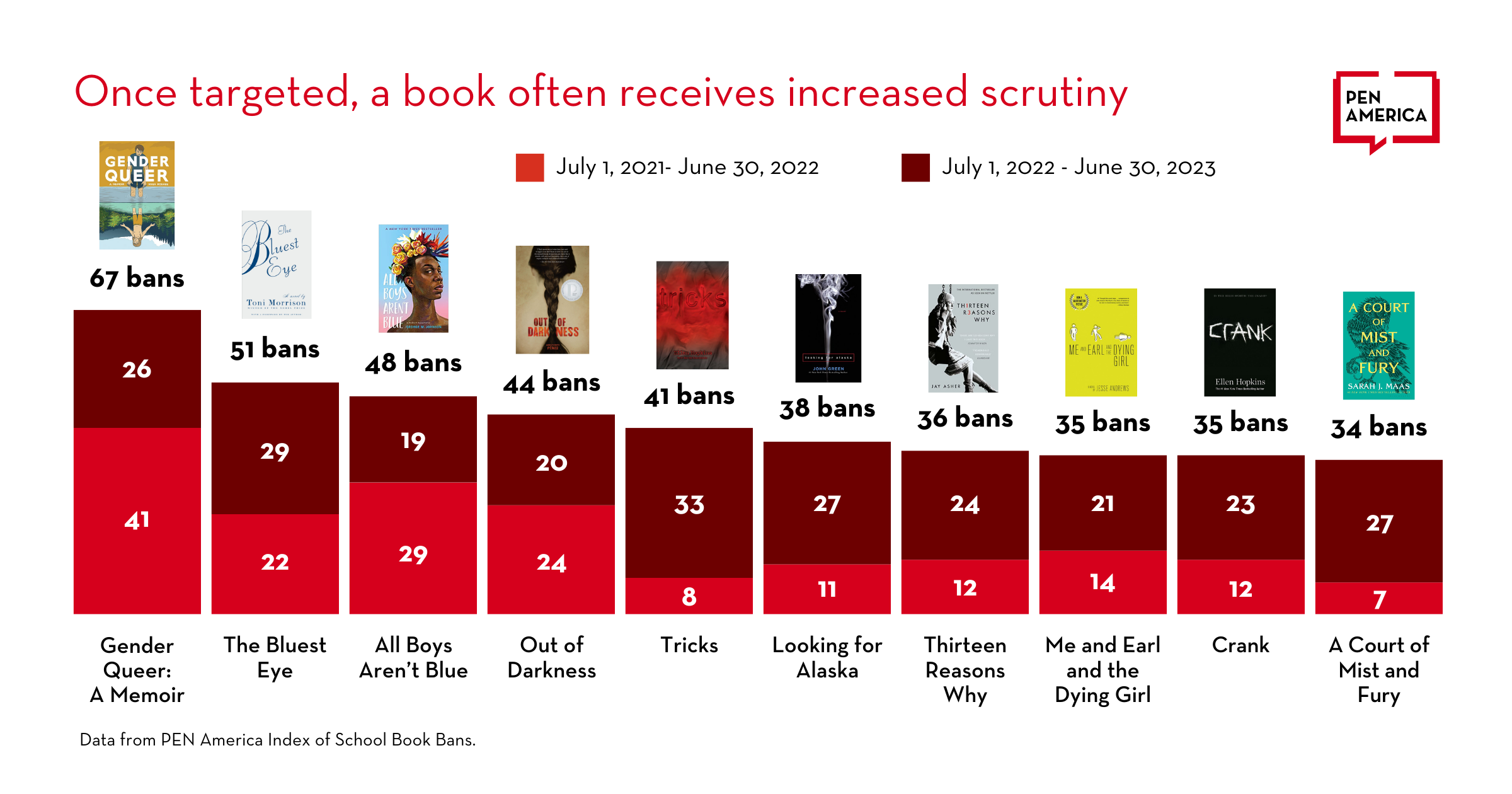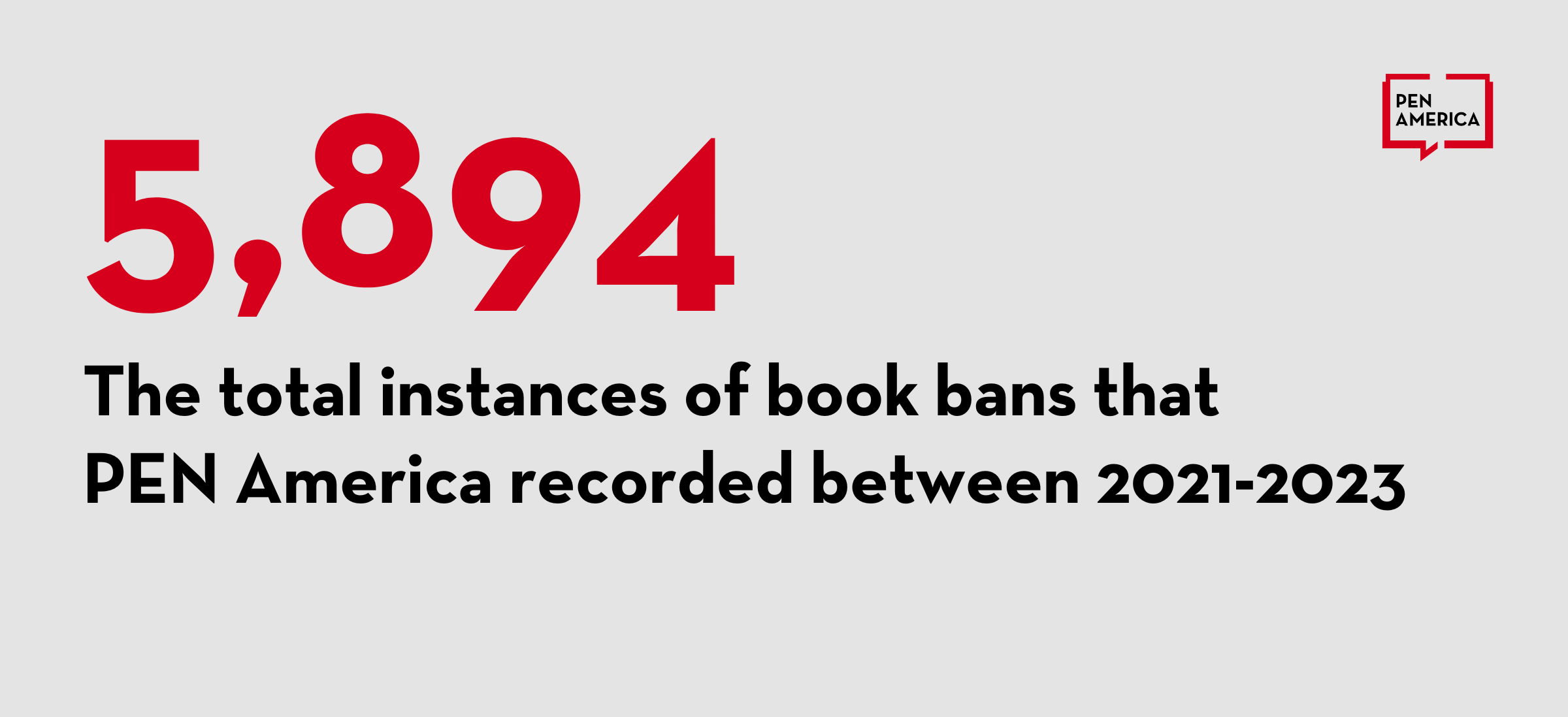
Book Bans Encourage More Book Bans: New PEN Report
This week, PEN America released a report titled “Spineless Shelves” reflecting upon the cumulative effect of the last two years of book bans in US schools. Nearly 6,000 books have been banned since 2021–and that number does not include the 444 titles pulled in one district the week the report was released.
Among the key findings in the latest report include:
- Copycat banning, where titles that have not been challenged in a district may be removed because a district elsewhere banned them
- The removal of all the books by an author when a single title of theirs is banned
- Books on challenging topics or about marginalized identities continue to be among the most banned in schools
- Bans on books have not only become more common but many of these bans have become more comprehensive and permanent.

For those paying attention to book bans, it comes as little surprise to hear that Florida and Texas top the list in number of books banned. But it’s not just in those states. All but 9 states have recorded book bans in schools since 2021.
Young adult books top the charts when it comes to book bans, too. YA books compose 58% of banned titles, followed by adult books (17%), middle grade (12%), picture books (10%), and chapter books (3%). All of this points to the reality that books written specifically for a school-age audience are the vast majority being targeted. These are the books that adults call “inappropriate,” “explicit,” or “pornographic”–even though they are for these age groups.

As the report points out, all of this data sits in an interesting position with the research on trust that parents claim to have in librarians–if 92% of them trust library workers to select and recommend age-appropriate materials for children, why all of the book bans?
More breaking news here
- Anne Hathaway Set to Star in Adaptation of VERITY by Colleen Hoover
- The National Book Award Winners for 2024
- The Bestselling Books of the Week, According to All the Lists
- Cormac McCarthy’s Longtime Secret Muse Revealed to Be 16-Year-Old Girl
- The Winner of the $100,000 Giller Prize has Been Announced
- The Best Debut Books of 2024, According to Debutiful
- Barnes and Noble has Announced its 2024 Book of the Year
- The Most Read Books on Goodreads This Week
- TIME’s 100 Must-Read Books of 2024
- The Bestselling Books of the Week, According to All the Lists










